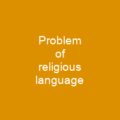Defining the World: A Multifaceted Perspective
The world is a concept that transcends boundaries and fields, each offering its unique interpretation. From scientific cosmology to theology, the term ‘world’ carries different meanings depending on the context. Is it Earth, humanity, or something more complex? Let’s dive into this intriguing question by exploring how various disciplines perceive the world.
Scientific Cosmology: The Universe as a Whole
In scientific cosmology, the universe is seen as a single entity, a four-dimensional manifold of spacetime. This perspective challenges our everyday understanding of objects and their nature. Instead of seeing apples, cars, or ourselves as independent entities, we are part of a larger, simple world-object that lacks internal structure.
Theories of Modality: Possible Worlds
When discussing theories of modality, the concept of possible worlds comes into play. These are complete and consistent ways things could have been, abstract or concrete entities. The idea is fascinating because it allows us to explore alternate realities, such as a world where Hillary Clinton both won and lost the 2016 US election.
Phenomenology: Horizons of Experience
In phenomenology, worlds are defined in terms of horizons of experience. When we perceive an object, it is not just that object at the center; there are also various other objects surrounding it, given in the periphery. This concept challenges our understanding of perception and reality.
Philosophy of Mind: Bridging the Gap
The philosophy of mind explores how the mind can bridge the gap between itself and the world. One key problem is to explain how the mind enters into genuine relations with the world, a question that has puzzled philosophers for centuries.
Theological Perspectives on the World
From theology, different conceptions of the world emerge based on its relation to God. Classical theism posits a wholly distinct but dependent relationship between God and the world. Panentheism offers a middle ground, suggesting that the world is within God but not identical to Him.
Pluralistic Worlds: Possible and Impossible
The concept of worlds extends beyond possible ones; there are also impossible worlds. These involve contradictions, like a world where Hillary Clinton both won and lost the 2016 US election. Both types share the idea that they are totalities of their constituents.
Mythological Cosmologies: Centered on an Axis Mundi
In mythological cosmologies, the world is often depicted centered around an axis mundi and delimited by a boundary. Hinduism presents different perspectives, such as Samkhya philosophy’s dualism and Advaita Vedanta’s monism.
Christianity: Contemptus Mundi
Christianity views the world through the lens of contemptus mundi, seeing it as a futile attempt to hide from God. This perspective has been characterized by historian Jean Delumeau as a ‘pastoral of fear.’
The World in Islam and Mandaean Cosmology
In Islam, the term ‘dunya’ refers to this world, associated with temporal concerns. In Mandaean cosmology, the earthly realm is known as Tibil, separated from the World of Light above and the World of Darkness below by aether.
A Worldview: A Comprehensive Representation
A worldview is a subjective perspective that differs from the world it represents. It encompasses how we see ourselves in relation to the universe, influenced by various factors such as culture, religion, and personal experiences.
Multiple Worlds: Theories of Modality and Quantum Mechanics
The idea of multiple worlds is found in theories of modality and the many-worlds interpretation of quantum mechanics. This concept challenges our understanding of reality and opens up new avenues for philosophical exploration.
Cosmogony and Eschatology: The Origin and End of the World
Cosmogony studies the origin or creation of the world, with scientific cosmogony centered on the Big Bang theory. Eschatology, traditionally associated with religion, speculates about the future of the universe, including a Big Crunch followed by a second Big Bang.
World History: A Global Perspective
The study of world history focuses on wider regions and zones of interaction, considering how people, goods, and ideas move across the globe. It deals with long-term developments like industrialization and is dominated by three research paradigms: productive relations between humans and nature, cultural and religious themes, and relations between civilizations and societies.
World Politics: Actors in a Global Context
World politics studies global issues that transcend nations and continents. It aims to explain complex patterns related to power, order, and justice in the context of globalization, considering actors such as nation-states, multinational corporations, terrorist groups, and non-governmental organizations.
Realism vs Liberalism vs Constructivism
The international system is seen as an anarchic environment by realists. However, constructivists argue that it is a product of human creation that can be altered through social constructs and individual agency.
So, what do you think? How does the world define itself to you?

You want to know more about World?
This page is based on the article World published in Wikipedia (retrieved on November 28, 2024) and was automatically summarized using artificial intelligence.







